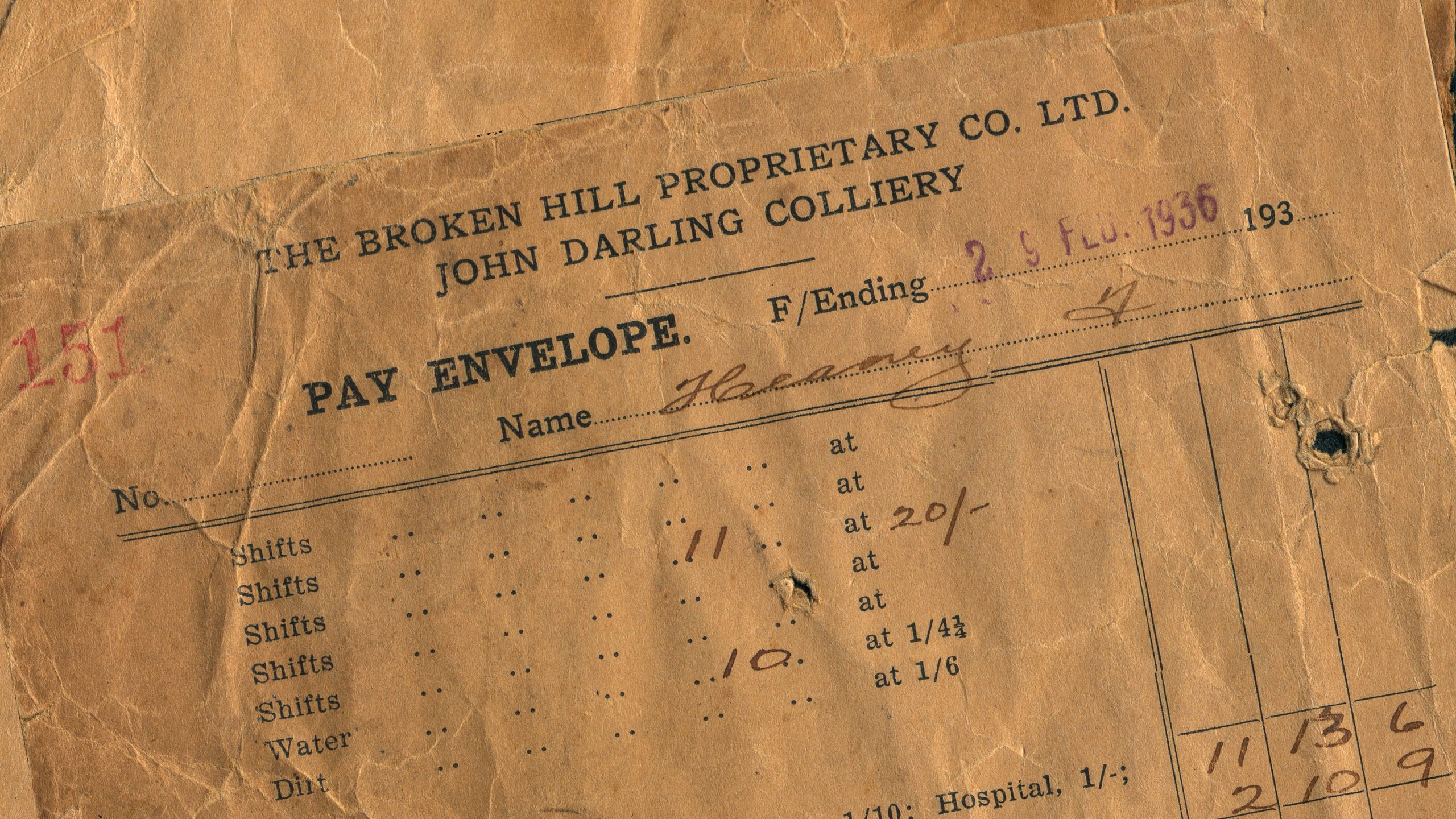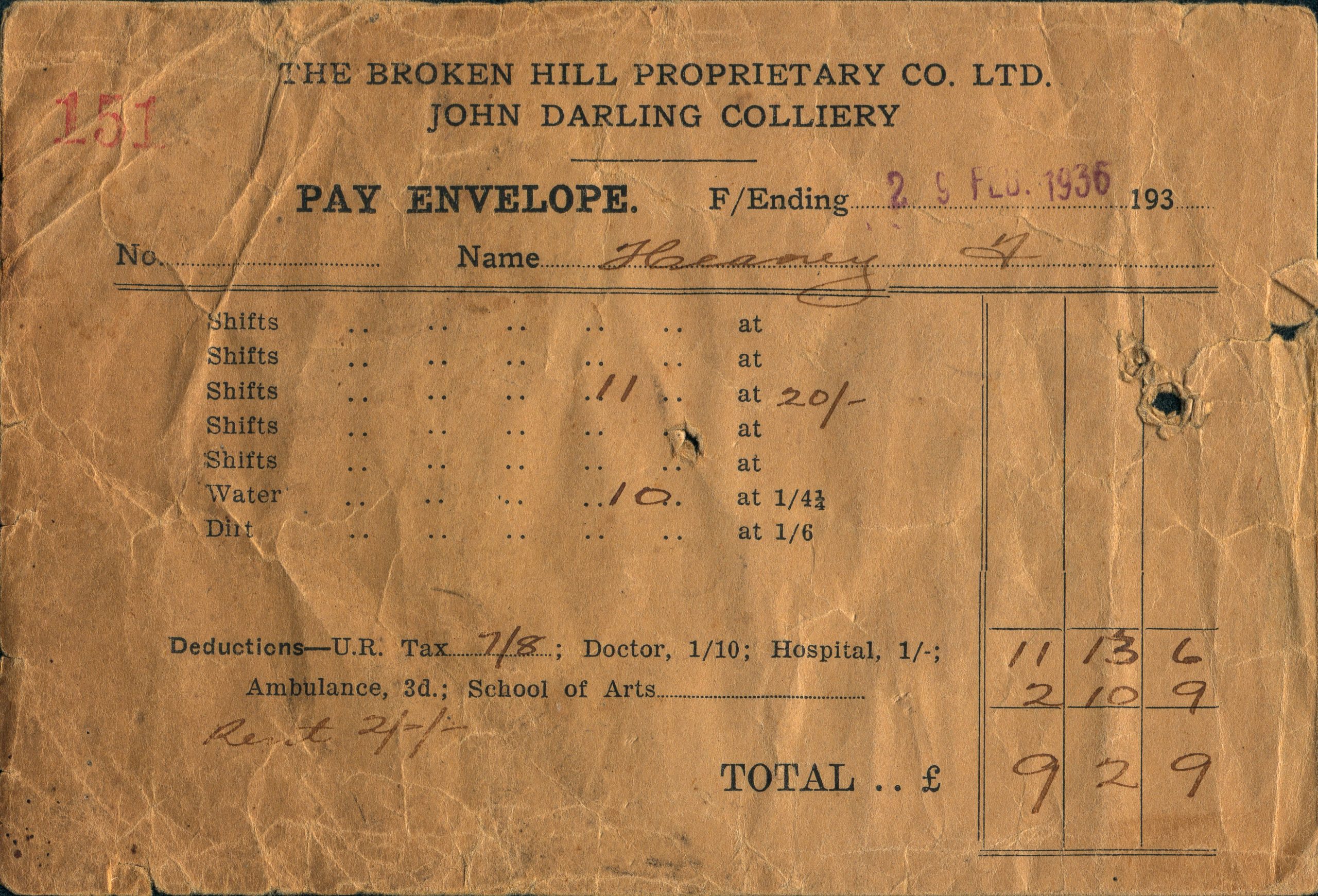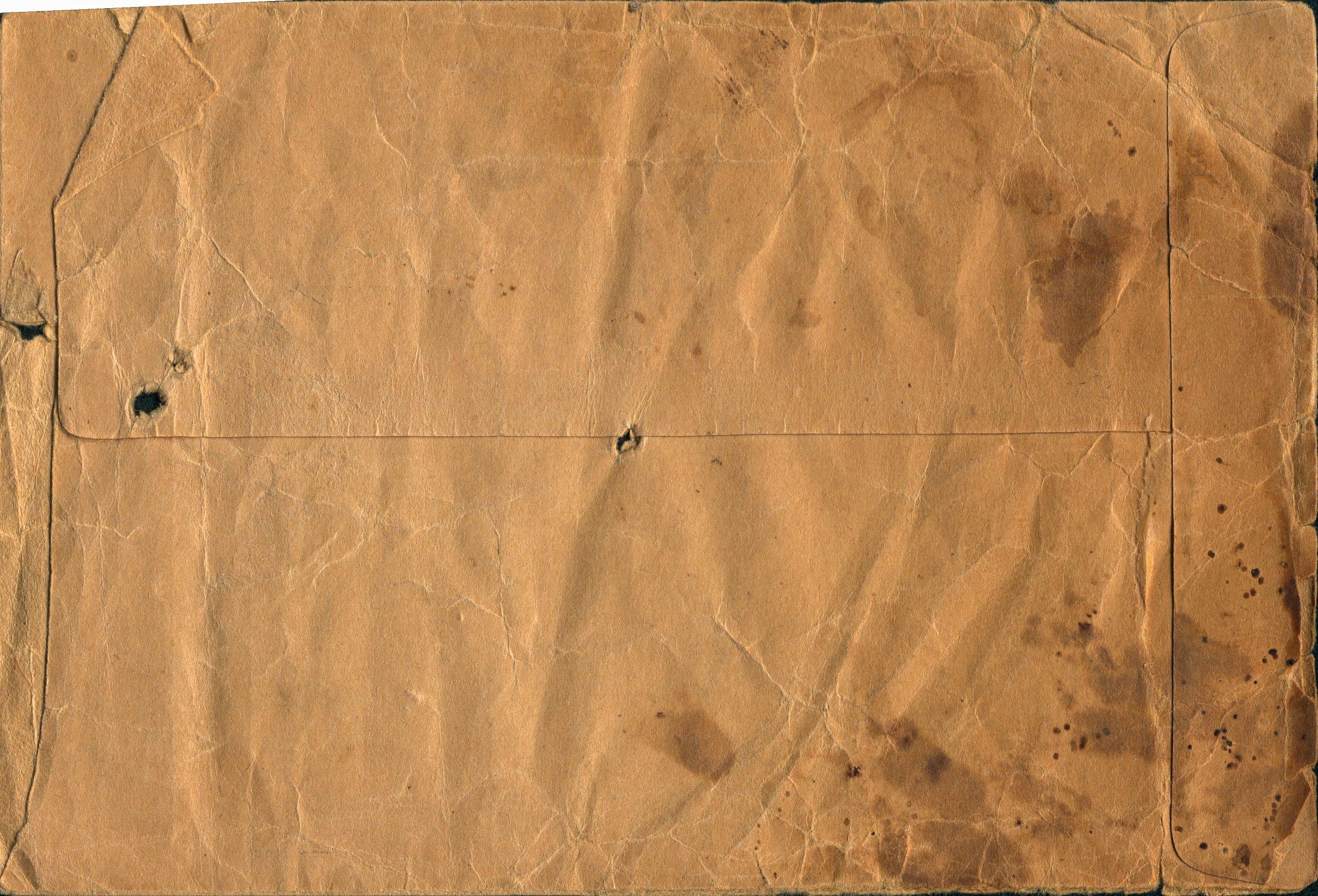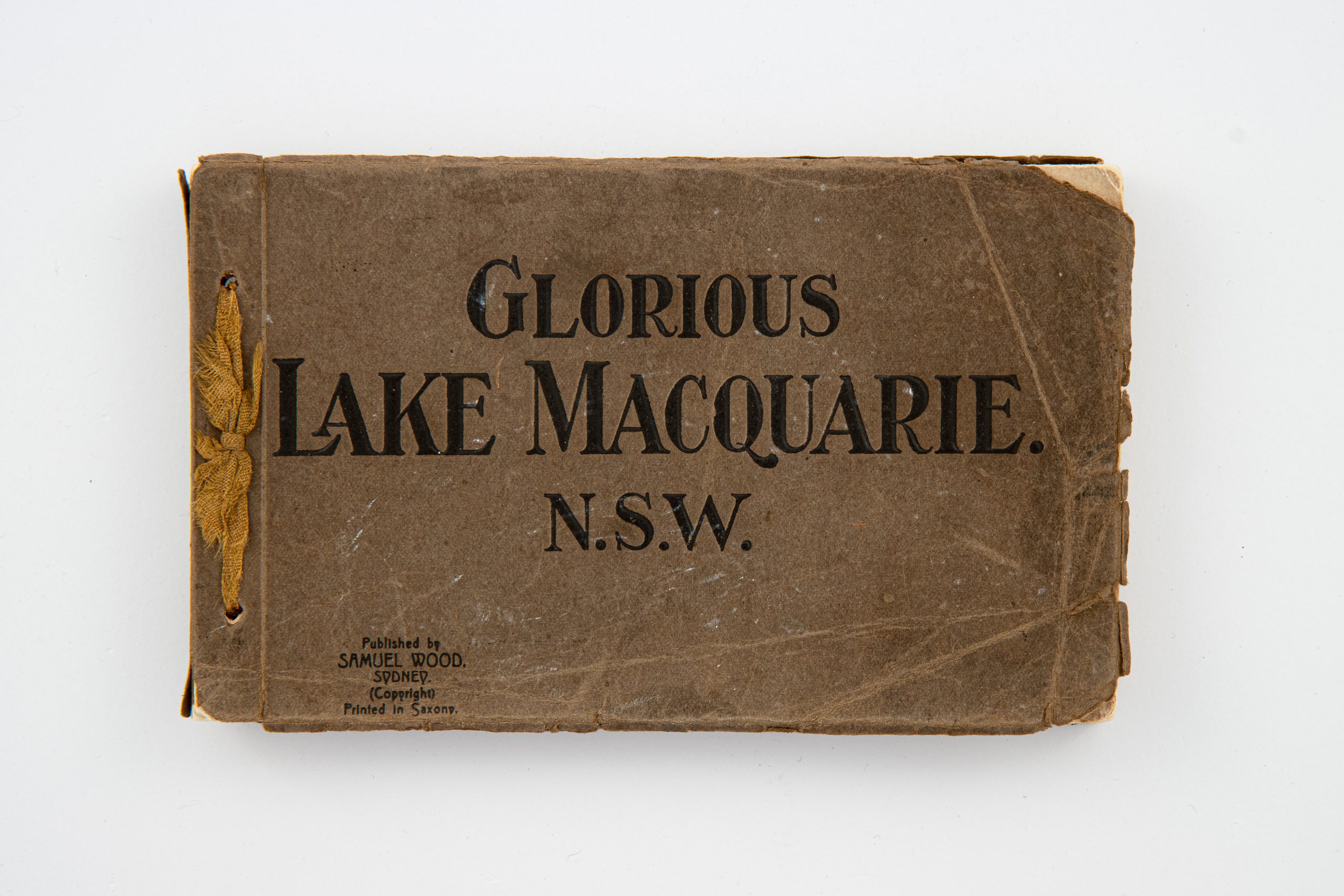The Jangling Envelope
Recompense for Dirty and Dangerous Work
This envelope yields a range of stories about how work and company practices have changed over time. The John Darling Colliery at Belmont, the employer, opened in 1925, with the first coal recovered in 1927 but ceased production only 60 years later in 1987. The employee, F. Heaney is thought to be either Frank snr. (1877–1943) or Frank jnr. (1911–1950) both of whom worked at John Darling Colliery.
Mining was wet, dirty and dangerous. The payment for water was for working in wet conditions but the lack of any ‘dirt’ payment suggests Heaney was not working on either pick or shovel. The dangerous side is indicated by deductions for doctor, hospital and ambulance. The John Darling mine was not immune from injuries to its workers or concerns over working conditions. The mine registered a number of fatalities, closed in 1936 for a week due to dust and in 1940 Frank Heaney was awarded compensation of £4 a week for five weeks after injuring his chest while at work. The deduction for rent of £2 suggests the colliery provided housing apart from those provided to managers. Both Heaneys lived in Redhead in the 1930s most of which until the late 1940s was owned by The New Redhead Estate and Coal Company. As the colliery was established on leases previously owned by this company did this relationship later extend to the provision of staff housing in Redhead?
Dirt and water payments were later incorporated into the award wage, mining conditions improved and employees became responsible for making their own payments for medical and ambulance contributions. The provision of housing for employees would become a thing of the past along with those jangling envelopes containing your pay in cold, hard cash.






